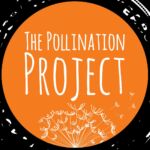Illegal wildlife trade produces from 7 to 23 billion dollars worldwide every year, World Wildlife Trade Report.
“Animals are a topic that society doesn’t give a second thought about, and my mission is to change that,” Brittany Vanderstine, Founder of Wild Exotics Animal Rescue.
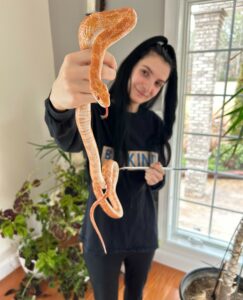 It is always easier to understand and love the ones close to us as we become witnesses of their struggles and accomplishments, whether they are people or animals. Domestic animals are usually prone to experience our compassion because of their closeness to us, but every creature ought to enjoy respect for their lives. Just like the German philosopher Arthur Schopenhauer once said: “The assumption that animals are without rights and the illusion that our treatment of them has no moral significance is a positively outrageous example of Western crudity and barbarity. Universal compassion is the only guarantee of morality.” This is a journey that has motivated Brittany Vanderstine to extend her care and compassion to some of the most vulnerable creatures: the exotic and wild animals.
It is always easier to understand and love the ones close to us as we become witnesses of their struggles and accomplishments, whether they are people or animals. Domestic animals are usually prone to experience our compassion because of their closeness to us, but every creature ought to enjoy respect for their lives. Just like the German philosopher Arthur Schopenhauer once said: “The assumption that animals are without rights and the illusion that our treatment of them has no moral significance is a positively outrageous example of Western crudity and barbarity. Universal compassion is the only guarantee of morality.” This is a journey that has motivated Brittany Vanderstine to extend her care and compassion to some of the most vulnerable creatures: the exotic and wild animals.
Brittany’s love for animals has been present in her life since her childhood. But when a heart condition sent her to the hospital a new addition to her family changed her life forever.
“Growing up I always had animals in my house, like dogs and chickens,” recalls Brittany. “One day I got sick and I ended up in the hospital so, to make me feel better, my dad brought a chinchilla home for me and that sprouted. I wanted to love more animals and I thought I’d go through the rescue route because I didn’t want to support the pet industry. So that was where it stemmed from getting sick as a 16-year-old girl and then sprouting to having a sanctuary at 23.”
The Journey of Rescuing Animals
“I plan to use my animal control degree to work within my community to show them the importance of coexisting with the wildlife in ‘our’ backyards, as well as taking domestic animals out of abuse situations,” says Brittany.
Brittany’s journey of rescuing animals began at 18 when she became a caretaker for exotic animals at the Popcorn Park Animal Refuge in Forked River, New Jersey.
“At Popcorn Park Animal Refuge, I had the incredible opportunity to care for tigers rescued from zoos, monkeys liberated from laboratories, cows and horses rescued from slaughter, as well as chickens and ducks surrendered from unprepared families,” remembers Brittany. “It became apparent, once working in an animal shelter, that people would try to surrender their unwanted exotic pets, but there was no place for them to go. The pet stores wouldn’t take them back, the dog and cat shelters weren’t equipped, and I wanted to do something to comfort these animals that so badly needed help. So, creating a small sanctuary was the first thing on my list.”
The Wildlife Trade Industry
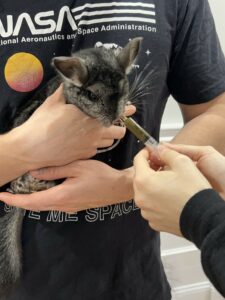 Pet ownership is widespread around the world. In the United States alone, 86.9 million homes own a pet, which is 66% of American households, according to the 2023-2024 APPA National Pet Owners Survey. Although dogs and cats are the most frequent pets with 65.1 million and 46.5 million respectively, other species make the list of the most common pets and – some of them – are not domestic animals, such as the 6 million reptiles or the 2.2 million saltwater fish.
Pet ownership is widespread around the world. In the United States alone, 86.9 million homes own a pet, which is 66% of American households, according to the 2023-2024 APPA National Pet Owners Survey. Although dogs and cats are the most frequent pets with 65.1 million and 46.5 million respectively, other species make the list of the most common pets and – some of them – are not domestic animals, such as the 6 million reptiles or the 2.2 million saltwater fish.
According to PETA, many of the exotic animals people buy often come from the animal trade industry, and for every animal sold many more die in the process of being trafficked from distant places under unsafe conditions – in some cases – with a survival rate that can be as low as 10 to 20%.
Around the world, more than 37,000 alien species have been introduced by human activities, putting human health as well as ecosystems in danger. This includes 3,500 invasive alien species of animals, plants, fungi, and microorganisms, at a rate of 200 new alien species per year, according to The Thematic Assessment Report on Invasive Alien Species And Their Control INVASIVE by IPBES.
Unfortunately, the wildlife trade is a very lucrative business worldwide which illegally generates an estimated 7 to 23 billion dollars a year including plants and animals, while legally it generates around 220 billion dollars a year, according to CITES World Wildlife Trade Report.
Wild Exotics Animal Rescue
“I decided that I wanted to have my own exotic animal sanctuary so I started from scratch,” recalls Brittany. “The very first animal that I rescued under the premise of Wild exotics was a 7-foot boa constrictor. My cousin had reached out one day and said, ‘Hey, I know this girl and her parents left her with this huge snake. If nobody takes a snake, they are considering putting it down.’ I immediately knew I had to help. I was able to get the snake and I brought her home. Her name is Persephone. She is very large but also very full of love and she was another animal that really helped me to start this. Once I rescued her, the feeling that it gave me was pure compassion, and I wanted to keep extending this kindness, so I kept going on to other species.”
The Wild Exotics Animal Rescue family grew fast. Currently, Brittany takes care of two Sulcata tortoises whose names are Alice and Chains, a very, very old albino corn snake named Jupiter who is in his late 20’s, 3 chinchillas named Baby, Chili and Dexter, a cockatiel named Miss Bird, and an African Egg Eating Snake named Yzma, as well as Persephone, the boa constrictor. Brittany has adapted her home to properly fit every one of the new species that are in her micro sanctuary and she makes sure to provide everything they need.
“I have learned to share my house and coexist with them,” says Brittany. “For a very long time, I was funding Wild Exotics out of my pocket and that is a lot for one person. So I started to be more active on our social media, Instagram and Facebook, and people started to find out who we were and they would send us contributions whenever we held some type of fundraiser”.
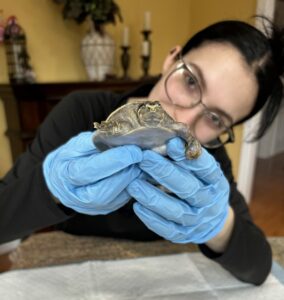 Brittany also attends in-person events around New Jersey and the surrounding states where she shows pictures of her rescued animals, talks about the struggles of exotic species as well as why people should avoid supporting their commerce, and sells apparel as another means to fundraising.
Brittany also attends in-person events around New Jersey and the surrounding states where she shows pictures of her rescued animals, talks about the struggles of exotic species as well as why people should avoid supporting their commerce, and sells apparel as another means to fundraising.
For 2 and a half years, Brittany has received many animals and has been able to place over 120 of them for adoption.
“One of the main ways that we receive animals is from people who have had them for a while and need a safe space for these animals to go. We get phone calls and emails from people wanting to surrender. In addition to that, our local animal control will get in contact with us when they are working on a cruelty case and they need somewhere for these animals to go. We’ve even had people approach us at events with animals in their hands for us to take home. We receive animals in many different ways and I’m very grateful that people are willing to approach us and trust us to care for these animals until the end of their lives or until they are adopted out,” explains Brittany. “We did have a very large rescue last year with a backyard beta fish breeder, which nobody thought could ever happen. Someone was breeding fish. They were in an awful condition and we had to take them in. We had to provide them with medicine, and people looked at us like we were crazy because they were fish. But these are little lives that we have to take care of. So that makes up a large number of the animals we did have to adopt out. The main reason why we don’t adopt out too many animals is because we largely serve as a sanctuary, and depending on where the animals come from and what their history is, they will maybe just spend the rest of their lives with us in the sanctuary.”
The Challenges of Rescuing Exotic Animals
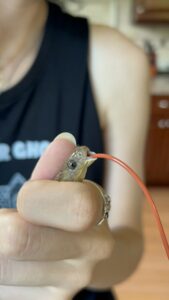 Brittany has surrounded herself with a group of allies to help her take care of the animals in her sanctuary; her partner, Rob, has been a big support through her process as well as other rescuers and veterinarians that she goes to for advice.
Brittany has surrounded herself with a group of allies to help her take care of the animals in her sanctuary; her partner, Rob, has been a big support through her process as well as other rescuers and veterinarians that she goes to for advice.
“One really big thing that I have learned from working in rescue is that we learn as we go because when we get animals in, it’s typically an emergency. So we have to learn on the spot. We may have to stay up all night before we receive them or the day that we receive them to do research and learn about what this specific species needs, and then create an enclosure. So in addition to learning on the spot with literature and online research, I am also very lucky because I get to work with veterinarians and other rescue groups that help us out with information. So it’s a big team effort,” says Brittany.
Although rescuing animals is Brittany’s passion, there is a more pressing challenge other than the cost and the work that needs to be done to take care of these wonderful creatures.
“The rate at which rescue needs to happen is probably the most challenging because it’s never all done,” says Brittany. “As soon as you rescue one animal, there’s another one that needs help. So the most challenging thing in running this rescue is the amount of animals that need to keep coming through the door.”
Faced with such a big task, Brittany decided she needed to obtain a non-profit status for her sanctuary so more doors could open for her labor to continue. She started looking online for funds to pay for the legal process to become a non-profit as well as the medical bills and everyday needs of the animals in her sanctuary.
“I found out about The Pollination Project researching online, and it’s been very hard to find organizations that are willing to help out people who do not have their nonprofit status yet. So I applied,” remembers Brittany. “One night, I woke up at midnight to check the time on my phone and I saw the e-mail from TPP. I was absolutely out of this world grateful and happy because with this grant we can start our process and become a nonprofit. And once we become a nonprofit, that will open so many doors for the animals, and I owe all of that to The Pollination Project, being able to help our animals.”
Brittany hopes to continue expanding her love and compassion to many more wild and exotic animals at her sanctuary, find land and build a place for all of them to live with the care and kindness they deserve.
“I am worried the most about compassion because I do not see many people that are willing to put themselves out there or even just show compassion to their neighbor. So compassion and kindness is a very big thing. I wish I could see more of it in our world and we’re working on that. We’re working on not only spreading compassion to exotic animals but also spreading compassion to those people who also come with the exotic animals because everyone needs kindness,” says Brittany. “I would say the most uplifting thing and the nicest thing about looking at this world is that you’ll always find a few extraordinary people wherever you look who are willing to help you. A lot of people come out of nowhere and they’re willing to show us a helping hand, and they’re willing to give us an ear and a shoulder, and that’s something great. Animals have it pretty hard and if you see an animal in need, don’t think that somebody else will help them because you are that somebody else. Even if it’s as simple as making a phone call or fostering.”
Join Us
If you are inspired by this work and have an idea for a project that addresses an issue that you are passionate about, we’d like to invite you to submit an application and together we will build a better, more compassionate future!
If you would like to support the work of more heartivists like this around the world, please visit our donation page and be a part of the change today!

